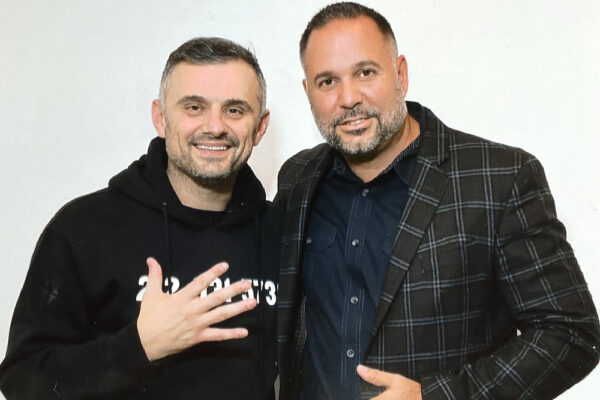The Spanish version of the interview is here.
Hi Germán, and welcome to Entrepreneurship-interviews. I think you are the first entrepreneur from Argentina that I interview! I know you are running more businesses, so what do they do?
Germán: Thank you for this possibility to talk about my company and services. Even when my main focus of work is on software development and consulting, I also sell hosting, domain names, and some sort of server administration services. All this is a complement of the software development services. On the software side, I’ve boxed products as PasswordsPro and A1 Business CMS (strongly focused on the Real Estate industry). Still, I also develop custom projects to satisfy the special needs of my customers.
Let’s talk more about PasswordsPro. Who should buy the product?

Germán: PasswordsPro is a product to solve a common need of most people that uses online services. As soon as the people start using more and more services, they need to remember more and more data access (users/passwords/pins/etc.). Then PasswordsPro permits, remembering only one password, to have access to all the user/passwords and even text notes that PasswordsPro stores on encrypted files. It’s aimed at any people needing to save this sort of confidential data.
How did you come up with the idea?
Germán: Honestly, the idea was of a friend of mine, and we started working together with the Spanish version of the product. The idea comes up precisely trying to find a small and easy-to-use tool to store confidential data in an encrypted format.
What’s special about the product?
Germán: I tried to develop a rock-solid product easy to use and portable (It can be executed from a pen drive without requiring installation). And I try my best with the support; most of our current users are not techie people (we count geologists, economists, bloggers, entrepreneurs between our current users) and need special attention.
What tools do you use to develop your products and why?
Germán: PasswordsPro was developed entirely on Dolphin Smalltalk, and all the web projects that I develop from scratch are based on Squeak and Pharo (They are also Smalltalk). I think that the advantage of Smalltalk and objects technology is terrific, but much more to small companies, as my MicroISV, because it permits very, very high productivity and really short times to market.
What development methodologies do you use?
Germán: I try to write software easily maintainable, extensible, and scalable, of course using Smalltalk. To achieve these goals, I work leaning heavily on design patterns and extreme programming techniques. It is essential to survive being a small team like us (4 to our biggest project).
Ok, so you are a micro ISV. Is it just you, or how many people are exactly working on passwords?
Germán: Currently, my older son is helping me with somethings related to hosting, administration, and so. On the technical side, I use to hire people when I got custom projects. Also, I hire the graphics design I need for my own projects or custom projects. But currently, I’m the only developer of PasswordsPro.
For a small software company, what are the best ways to market the product?
Germán: Internet, without a doubt. I remember reading years ago that on the Internet, even a small company may look great. On Internet do you have a lot of ways of promoting and offer your products and services, even when it is not an easy task is not impossible neither. Without the Internet I could not be here talking to you, much less selling my products in other countries.
You’re giving away licenses for reviews; how do you handle it if the review is not so good?
Germán: I like to be honest, and if I think that the review doesn’t have errors or omissions and is the genuine opinion of the reviewer, then I have no complaints. I will try to improve the product in the needed aspects to earn a better opinion.
Do you think it would have been easier to do this for a US company?
Germán: I think yes. The language is a big barrier to non-native English speakers like me. Also, a big market like the USA should help a lot.
Just to give people an idea about what a small software business could do, in how many countries is PasswordsPro sold?
Germán: Currently, we have PasswordsPro customers in the USA, Australia, New Zealand, India, Belgium, Spain, Argentina, and United Kingdom.
Did you make a business plan before starting PasswordPro, like how many hours you plan to invest and what’s the return? Is it important to have a business plan for a software company?
Germán: It’s important, but I always failed to do business plans because I never found an accurate way to estimate sales
Did you have a tipping point when you realized the product might work and return the investment?
Germán: Hehe, I think I do not saw it yet. But I think that is a utility very useful and our level of sales is growing.
Talking about Argentina, how is the small business environment over there?
Germán: Well, we have the advantage to sell (1 USD ~= 4 Argentinian Peso), but it is a disadvantage to invest in hardware, for example. Our costs in technology are high (I mean hardware, bandwidth, etc.). Also, we have high costs to move here the money of our sales in the USA or Europe, and the laws are only now, very slowly, considering some aspects to help the IT industry.
What would be the most important advantages Argentina has in starting a business over the rest of South America?
Germán: I think that could be our position with the exchange that permits to produce with Argentinian costs (Live here is cheaper than living in the USA or Europe) and sell at international prices, at least on the MicroISV contexts. In other contexts, like big software factories, I couldn’t opine.
Getting back to your business, I know from my own experience that one of the most difficult things is to have a balance between solving bugs and developing new features or new products. Any methodology you use for determining this balance?
Germán: Usually, I try to invest the time in the things I consider more useful to the users. I’m ever interested in know the user’s feedback because it is the best source of information about the things I should do (and the more profitable ones).
If you were to start a new product, what would it be?
Germán: I like fields as robotics, industrial control, software embedded, 3D and would like to explore deeper these areas. Also, on the commercial side, I would like to explore the Apple market.
Any advice you would like to give other people looking to start a small software business?
Germán: I’m not the right man to talk about money, profitability, business plans, etc., but I can talk about the more rewarding side of being an entrepreneur: The freedom to build your own destiny and the rewarding feeling that transmits each satisfied user. Getting up every morning to work on my own projects is really priceless (Even when I’m still a part-time entrepreneur, I know the feeling).
Any blogs or resources someone willing to start a software business should read?
Germán: I usually read Business Of Software, The Balsamiq Blog, 47hats, OISV, and, of course, Entrepreneurship Interviews. In the last times, I started to understand also that Twitter may be a terrific tool for business.




